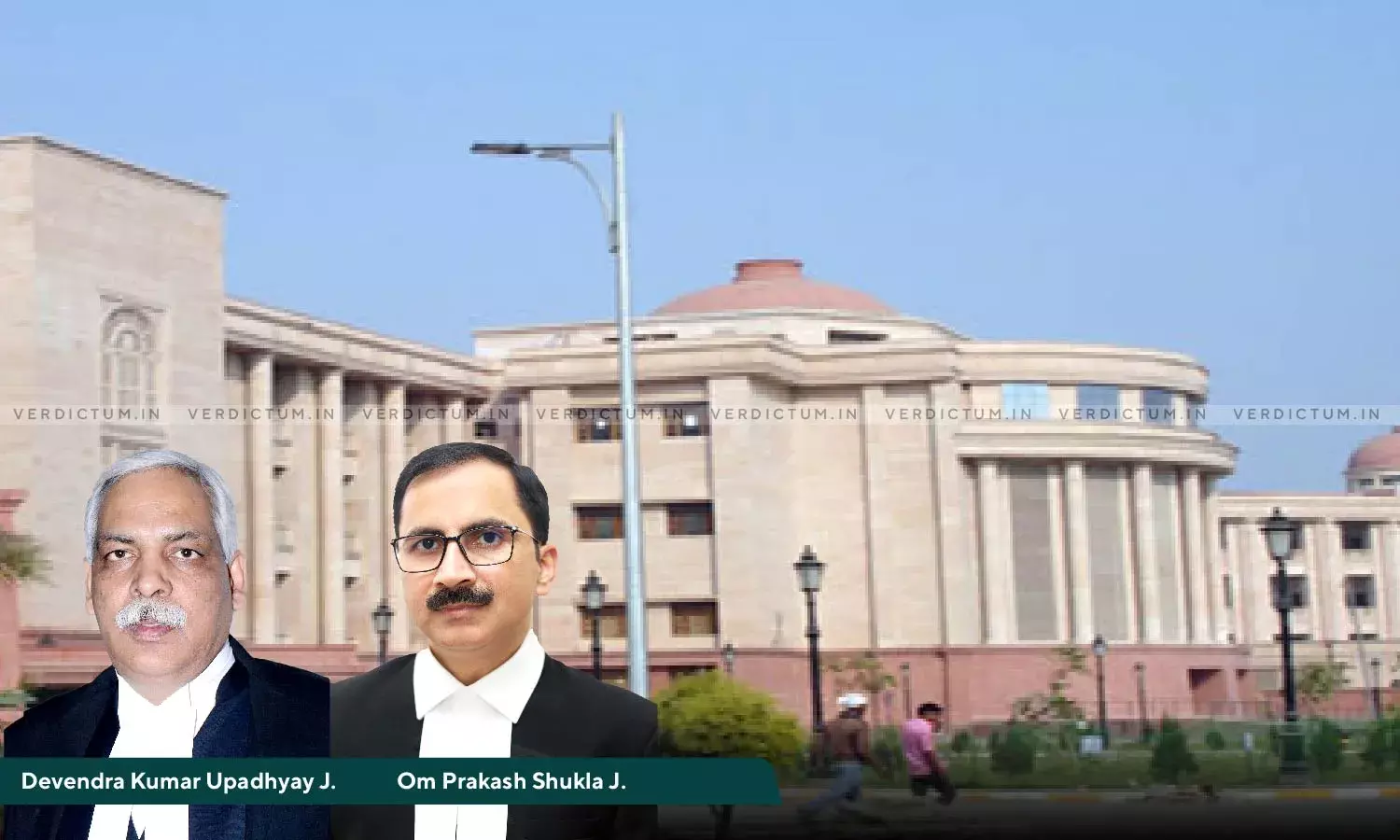Cooperative Society Regulations| Marital Status Of Daughters Irrelevant When Deciding Compassionate Appointment Cases: Allahabad HC

The Allahabad High Court allowed a Writ Petition, challenging the impugned order of the General Manager (Administration) of the Respondent-Bank. The Court held that the marital status of daughters should be irrelevant when deciding compassionate appointments in a Cooperative Society.
A Division Bench of Justice Devendra Kumar Upadhyaya and Justice Om Prakash Shukla observed, “If compassionate appointment has been made available to the daughters irrespective of their marital status, of the State Government employees, there does not appear to be any reason why such benefit should be refused to the daughters of the deceased employees who have served a Cooperative Society in the State of Uttar Pradesh. The conditions of services are governed by statutory prescriptions made in terms of provisions contained in Section 122 of 1965 Act”.
Advocate Ajay Madhavan appeared for the Petitioner and Advocate Gaurav Mehrotra appeared for the Respondents.
In this case, the father of the Petition was employed with the U.P. Cooperative Rural Development Bank Ltd. (Bank) and died due to an unfortunate incident. After that, the Petitioner requested the Bank for a compassionate appointment, which was rejected merely because the Petitioner was married and as per the guidelines contained in Regulation 104 of the U.P. Cooperative Societies Employees' Service Regulations, 1975 (Regulation, 1975), only unmarried daughters were eligible for the benefit.
The Bench observed that the U.P. Cooperative Institutional Service Board (Institutional Board) was authorised to frame such regulations by the powers conferred by Section 122 of the U.P. Cooperative Societies Act, 1965 (Act, 1965). Although the powers conferred by Section 122 of the Act, 1965 were subject to the approval of the State government. The Court noted that the State Government turned down a proposal by the Institutional Board to amend Regulation 104 of Regulation, 1975.
“It is in exercise of powers vested by Section 122 of the 1965 Act that 1975 Regulations have been made by the Board with the approval of the State Government and it is as per the requirement of Section 122 of 1965 Act that amendment in Regulation 104 of Regulations 1975 was proposed by the Board, however, the State Government has refused to accord its approval to the said proposal”, the Bench asserted
The Court expressed disappointment over the State’s rejection of the proposal by the Institutional Board. It asserted that there was no plausible reason for the State to reject such a proposal, even after the Apex Court had affirmed the same.
The Court noted, “We are rather at dismay by noticing that the proposal sent by the Institutional Board has not been approved though in respect of State Government employees the provision has been amended where "family" now includes daughters irrespective of their marital status. It cannot be presumed that the State while rejecting the proposal sent by the Institutional Service Board for amending Regulation 104 was not aware of the Division Bench Judgment of this Court in the case of Vimla Srivastava and Neha Srivastava (supra). It is also difficult to comprehend as to why the fact that the special leave petition filed by the State in the case of Neha Srivastava has been dismissed paving the way to give the benefit of compassionate appointment to all the daughters of the deceased employees irrespective of their marital status has gone unnoticed”.
Accordingly, the Court allowed the Petition and struck down the term “unmarried” under Regulation 104 of U.P. Cooperative Societies Employees' Service Regulations, 1975.
Cause Title: Neelam Devi v State Of U.P. (Thr Prin. Secy. Co-Operative) And Ors. (2023:AHC-LKO:46313-DB)

